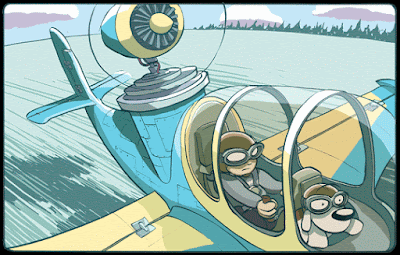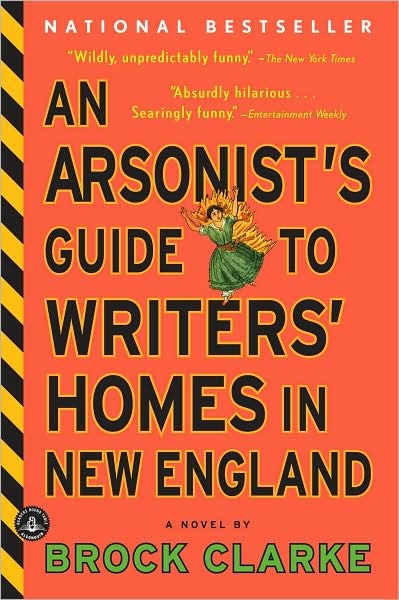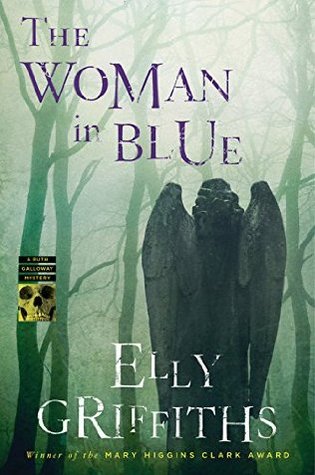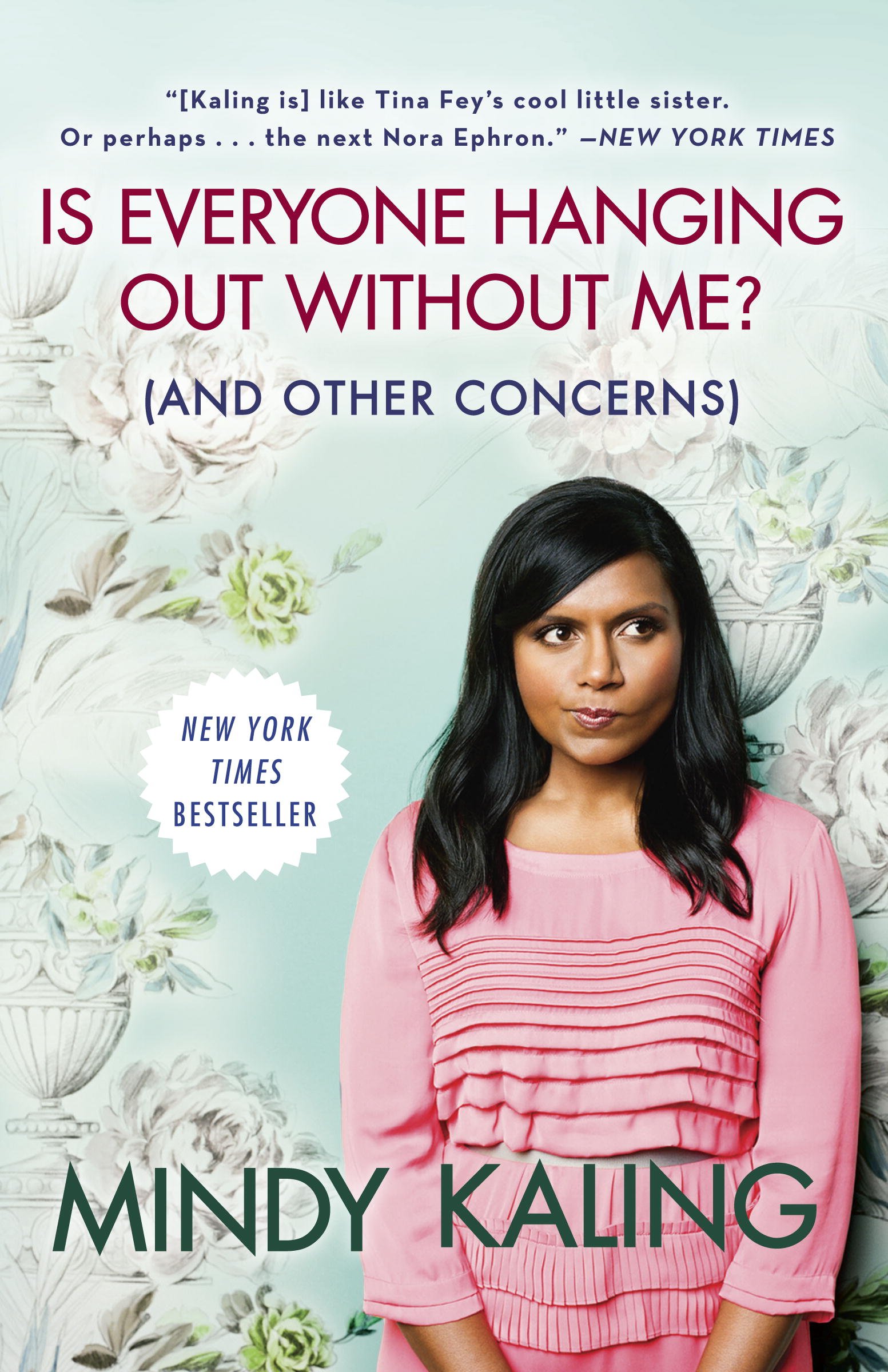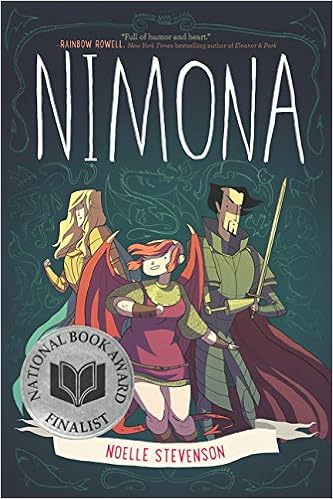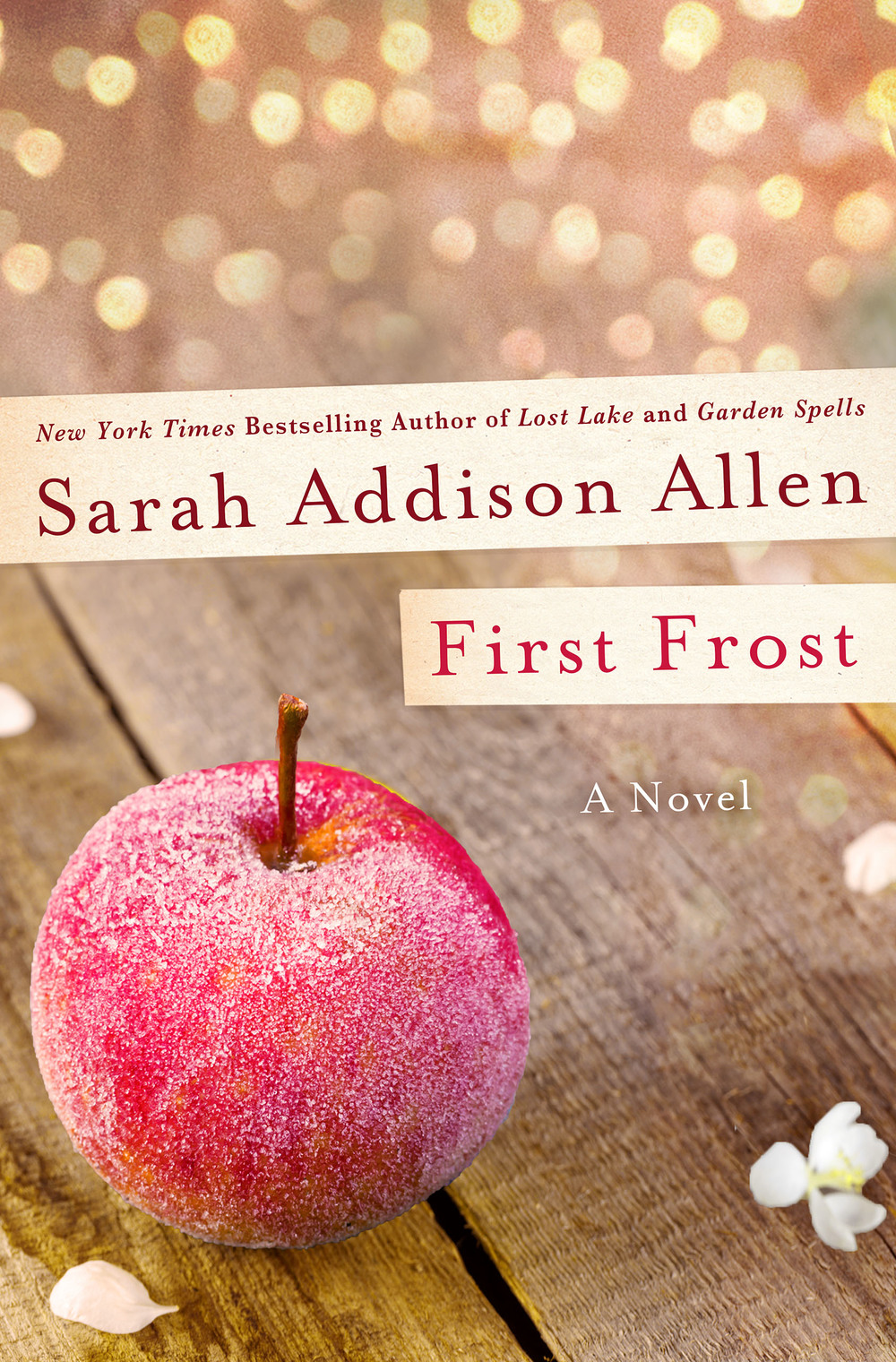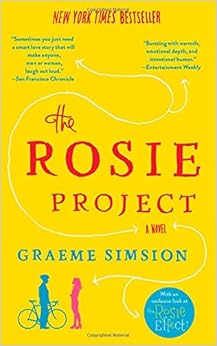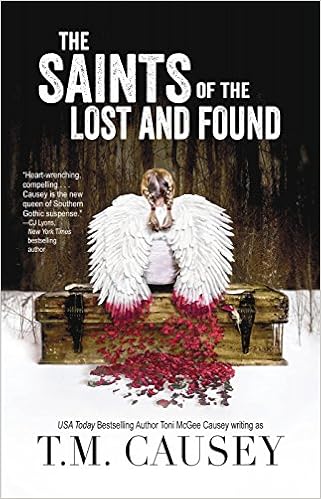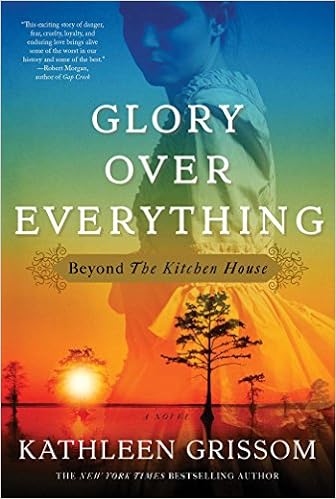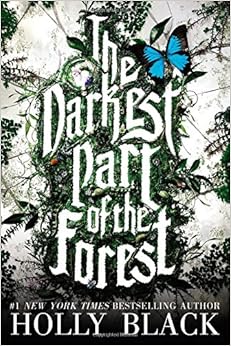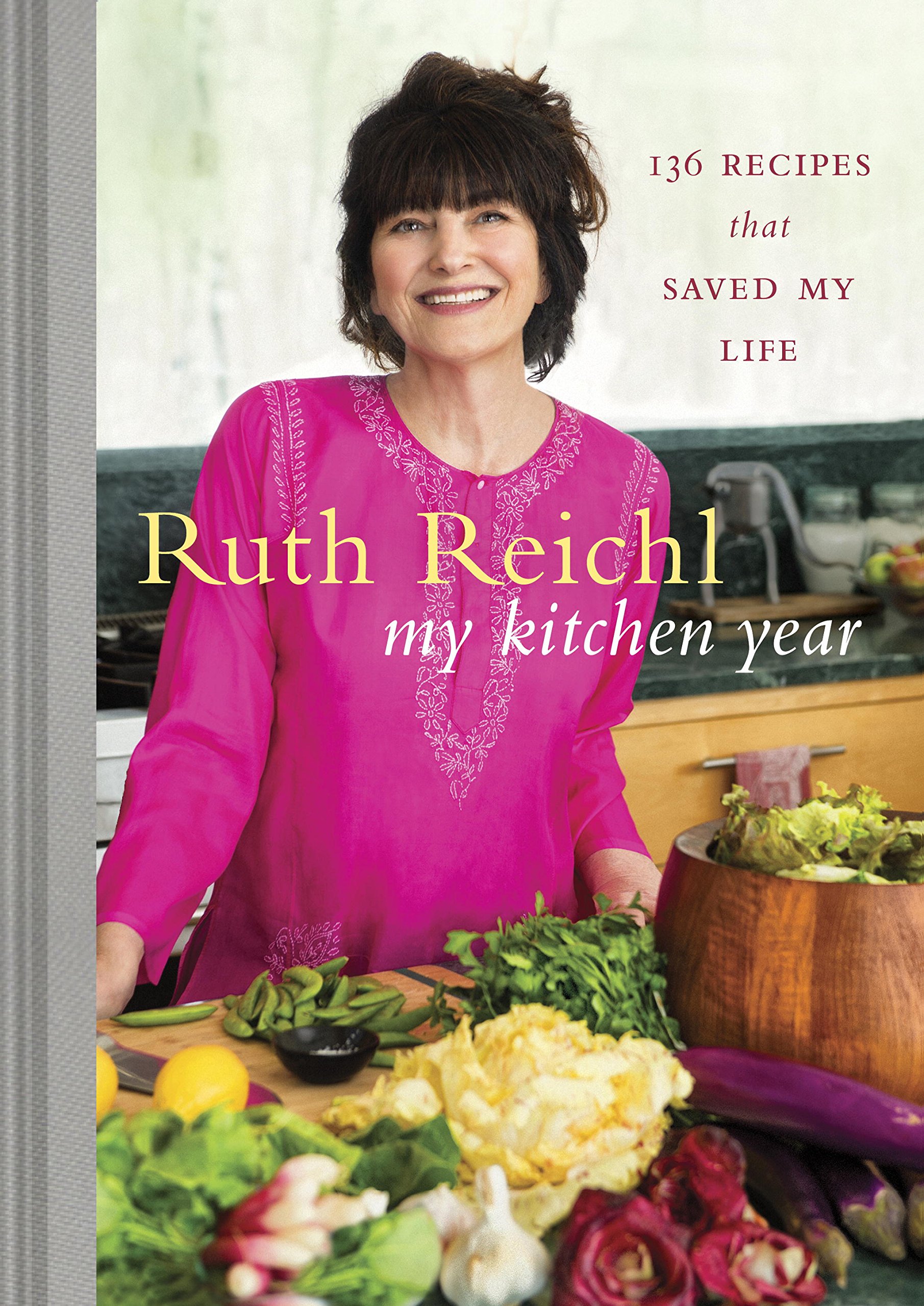Time travel into the land of mist and myth
Outlander is very popular here at the DFL; many staff
members have read the books and/or watched the recent TV show, and so it is a
frequent topic of discussion. I watched the show when it first came
out – and loved it – so I've finally decided to dive in to
the books themselves. I'll be offering my thoughts on each book in
the series as I read them through the rest of this year. Today, I’ll start
with the first two books in the series (which to me were really two halves of a
self-contained story), with the additional perspectives of three of my lovely
colleagues.

Outlander (1991) and Dragonfly in Amber (1992) together tell
the story of the tail end of the Scottish uprising of the mid-1700s, which
ended with the Battle of Culloden, from the perspective of Claire – a WWII nurse who accidentally travels back in time from 1945 to 1743 Scotland. The books touch upon many
fascinating subjects, both reality – including daily life, health
care, and politics in the 18th century (and even to a certain extent, mid-20th
century) – and fantasy/sci fi, such as: can events in the past ever be
changed, or is history always set in stone? And intertwined throughout is
romance, adventure, and intrigue.
KAREN:
I had heard so much about the Outlander series and always felt
I should read them, but I’ll confess that the thickness of the books made me stay
clear of them for a long time. A couple of summers ago, I caved and started
reading the first one. The TV show was coming out and I wanted the visions in
my head before Hollywood provided them for me. Before I knew it, the end of
August arrived and I had read through the whole series. I was hooked and ready to fly
to Scotland.
Call them romance, historical fiction, fantasy, or adventure
– the series crosses many genres. They
left me wanting to do a little research on the Battle of Culloden and Scottish
history. They left me trying to learn a few words in Gaelic. They left me
wondering what I did with my old kilt and instead of thinking ‘Don’t worry’ I
found myself thinking ‘Dinna fash.’
They also left me wondering if – given the chance –
would I go back in time? Luckily I don’t
have to decide. I can take my 21st century knowledge and live in a Scottish
castle. I can learn about medicinal herbs and sleep on a bed of pine needles,
but I can do it with electricity, and modern medicine . . . and coffee. . . hot
coffee in the morning. I can travel through pages (instead of stones) into the
world of romance, loyalty, and honor created by Diana Gabaldon.
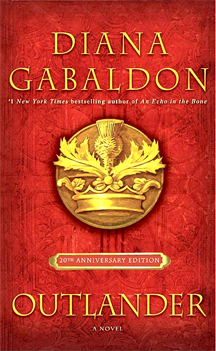
Give them a try. If you're also intimidated by the
thickness of the books, try the audio. There is nothing like a commute to work while
listening to someone profess their love with a Scottish brogue.
SUZANNE:
I really wanted to like Outlander. It has story elements
that I enjoy: a smart and strong female lead, historical fiction, and some
magic. But the story just never drew me in and although I am glad that I read
this, I didn’t actually like it. It even left me confused, and wondering what
about this massively popular story I am not getting.
One common theme that rarely holds my interest is what I
think of as the “Too Many Boyfriends” scenario, which is when lots of male
characters are lusting after the female protagonist, and a love triangle is
part of the main story. I tend to find that dynamic annoying because it seems to
be a lazy way for an author to show the importance of a female protagonist. Claire
has two husbands, both love her eternally and completely, and she’s also
constantly being ogled, commented upon, and pawed by both friendly and
antagonistic male characters.
This was also a more violent story than I was expecting, and
that bothered me. As someone who really enjoys the Song of Ice and Fire series,
I can handle violence in novels. But the violence here was often justified in a
way that made me uncomfortable. Jamie beats Claire at one point and she comes
to forgive him because he explains that he did it out of love for her. Jamie
speaks about the beatings he received from his father as being a sign of love. Claire
and Jamie’s whole relationship in general seems to hinge on the fact the he is
horribly hurt over and over, and she heals him. Throw in some added baby
exposure and bare-handed wolf killing, and it was all too much for me.
There was also an element of gay panic to this story. There
is an ancillary gay character who is predatory with a predilection for
adolescent men, but who is also written off as a buffoon and an object of
ridicule for the other characters. And then, of course, there is Captain
Randall (I won’t say too much – spoilers!). Also, the fact that Captain
Randall looks exactly like Claire’s other husband, Frank, made me wonder what
sort of strange symbolism that was supposed to represent.
So, what am I missing? Why do people love this series? Is it
better as a TV show?
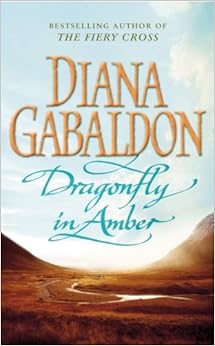 LINDSEY:
LINDSEY:
I enjoyed
Outlander far more than I expected to. Romance novels aren’t really
my thing, but the historical element drew me to the series (as well as the
urging of several coworkers) and I am so glad that I read them.
At first, I was displeased by the “woman loves two men and
has to choose” story arc but Gabaldon made Claire come alive for me and instead
of a torrid love story, I saw a woman doing the best she could under
extraordinary circumstances. I’m going to try to avoid spoilers here but I
really loved how Gabaldon took common themes like abduction, rape, and rescue
and flipped them. This damsel spent as much time rescuing as being rescued and
all characters carried the scars of their encounters. Nothing was easily won or
easily forgotten, which contributed to the depths of the characters and my
attachment to them. Obviously the time comes when Claire must choose between
her two men and I have to admit that I cheered at her choice. In all I was
pulled into this book and taken for a ride that I thoroughly enjoyed.
BETH:
It’s worth noting that Lindsey, Suzanne, and I started
reading #1 together after the first season of the show aired. Lindsey and
Suzanne – neither of whom watched the show before reading the books –
both mentioned that they had a bit of a hard time getting into the story at the
beginning (one of whom ended up really getting into the series, the other didn’t –
I’ll let you guess which is which). But I watched the show first, and had no
trouble getting into the story at all. While I don’t usually recommend watching
a show or movie before reading the book, in this case I can’t help but wonder
if the show helped me get into the book because it was so great. I was impressed once I did read
the book how closely the show stuck to the original story. In fact, there were
quite a few details in which I thought the show even improved the book, specifically
where the it could 'show' something that the book only 'told'.
Overall, I thought that the characters were wonderfully
complex, the setting incredibly interesting, the writing was great, and I
really appreciated that by the end of #2, almost all the different threads brought
up in #1 were resolved, so that none of the specific story lines felt like they
dragged out too much, but rather ended in a very satisfactory manner (which of course left an opening for many other adventures in the rest of the series).
While I too was occasionally bothered by what might have
been a little bit too much sexual violence for the sake of sexual violence, I
did feel that Gabaldon was trying to make a point about what the reality was
like for women in the 18th century (and most of history before and even after
that). For most of written history (at least in terms of Western / European history),
women have been considered the property of their fathers and husbands, and
sadly I think it was more common than not for men to take advantage of this. I
thought the books did a good job of expressing how anathema that would be to a
modern woman, and really helped immerse my mind in the attitudes of the era.
At the end, I was very satisfied with the way that this
story (in books #1-2) addressed the fascinating question of whether or not we
can change the past, in both large and small ways. While it makes me sad that time
travel may always remain science fiction, perhaps it’s for the best, and at
least we can always travel to any time period through books, shows, and movies.
And, as Karen pointed out, can do so from the comforts of our own heated, clean
living rooms with a nice cup of tea and some cookies!
Keep reading! Beth




